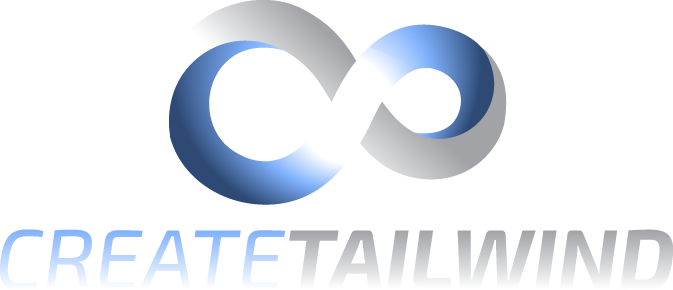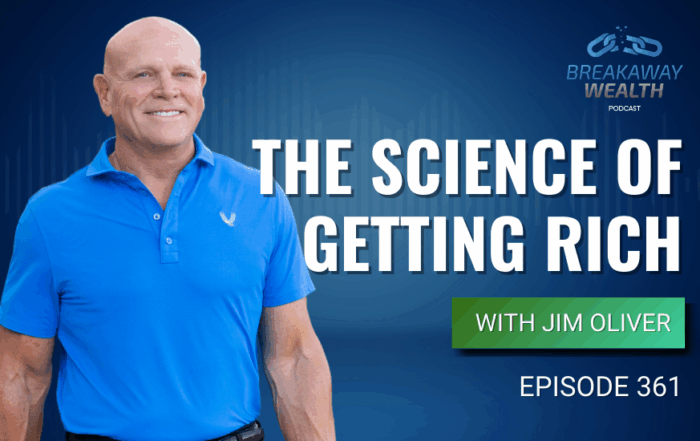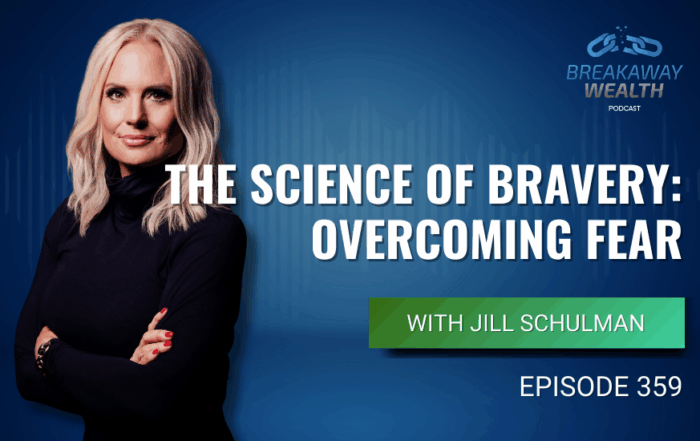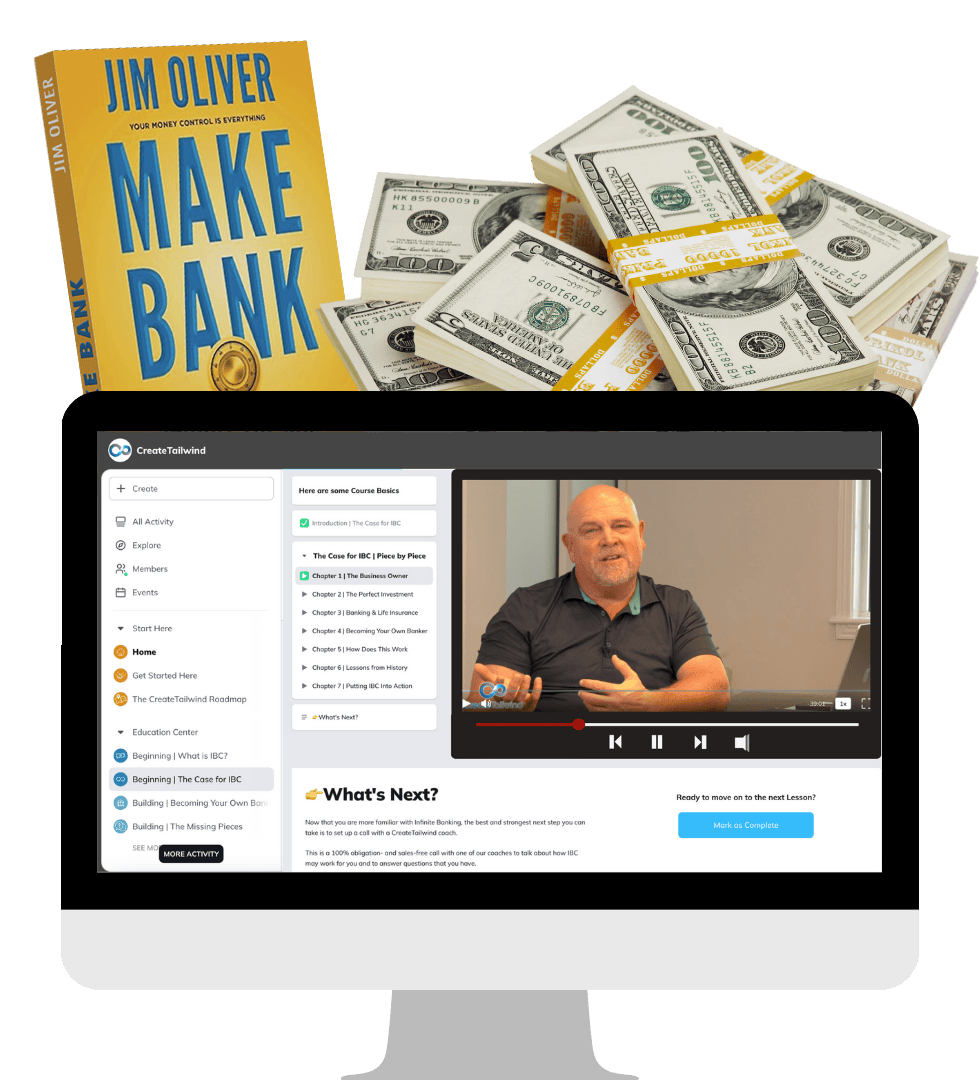Is Infinite Banking Right for High-Income Earners?
By CreateTailwind
If you’re a high-income earner—pulling in $250,000, $500,000, or $1M+ per year—your problem isn’t making money. It’s keeping it. It’s protecting your capital from erosion by taxes, inflation, fees, and friction. It’s about building a system that matches the complexity of your life and the scale of your ambition.
Infinite Banking (IBC) isn’t a sales tactic. It’s not a product on the shelf. It’s a strategy reserved for those ready to build their own financial infrastructure—independent from the games played on Wall Street or by traditional banks.
Let’s dig into what makes IBC a uniquely powerful fit for high-income earners—and what you need to understand before you deploy it.
The Pain Points of High Income
When your income hits a certain level, you move from playing checkers to playing chess—and most financial strategies weren’t designed for chess players.
Here’s what high earners are up against:
- Tax Drag: You’re likely in the 32%, 35%, or 37% federal tax bracket. Add state income tax and capital gains, and you’re losing 40–50% of your marginal income. The IRS becomes your silent partner.
- Liquidity Constraints: Your retirement assets (401(k), SEP IRA, etc.) are locked up until age 59½. You can’t deploy them without penalties or tax consequences.
- Opportunity Cost: You spot an investment or need capital fast—but your wealth is locked in illiquid vehicles or third-party managed accounts.
- Risk Creep: You have increasing exposure to lawsuit risk, especially if you’re a business owner, investor, or medical professional.
- No System: Most high earners are still operating within fragmented strategies—some stocks here, some real estate there—but no overarching framework for control, capital deployment, and recycling.
Why IBC Solves for This
IBC is not an investment. It’s a framework that makes every investment you do more powerful. It’s the warehouse where you store your capital before it’s deployed. And it does this while delivering liquidity, safety, tax efficiency, and uninterrupted compound growth.
Let’s break it down.
1. Tax-Advantaged Growth with Total Flexibility
The cash value inside a properly structured whole life policy grows tax-deferred. Borrowing against it is tax-free. You’ve now built an account that grows safely, compounds indefinitely, and can be tapped without triggering a taxable event.
Real Example:
Suppose you earn $900,000 annually and you’re already maxing out your qualified plans. You decide to redirect $250,000/year for five years into an IBC policy.
By Year 5, your policy has over $1M in cash value. You borrow $400,000 to invest in a private real estate fund that yields 12% annually.
- Your policy keeps growing uninterrupted.
- You repay the loan from the investment’s returns.
- You’re no longer watching money sit in idle checking accounts or inefficient tax-sink brokerage accounts.
2. Leverage Without Liquidation
High earners often see opportunities—distressed real estate, private lending, strategic partnerships—but can’t act without cashing out other investments.
With IBC:
- There’s no need to sell stock.
- No tax realization event.
- No 30-45 day wait for underwriting or bank approval.
You borrow against your policy. You act. You win.
3. Uninterrupted Compounding
When your capital keeps working even when you’re deploying it elsewhere—that’s exponential thinking.
- Your $750,000 cash value grows at a guaranteed rate, plus dividends (typically 4–6% total).
- You borrow $300,000 to invest in a business that nets 20% ROI annually.
- Your capital is now working in two places at once.
This is not possible with traditional accounts.
4. Legal and Asset Protection
Cash value in whole life policies is protected in most states from lawsuits and creditors. If you’re a surgeon, a business owner, or own rental property—this is non-negotiable.
You want privacy. You want safety. You want a vault no one else can touch.
5. Systematized Liquidity
One of the least discussed—but most powerful—benefits of IBC is creating rolling liquidity.
- Multiple policies
- Laddered capitalization
- Strategic repayment and re-deployment
You create an ever-expanding system where capital is never idle, but always accessible.
Real Case Study: Physician with $1.2M Income
A 50-year-old physician in California earning $1.2M/year sets up an IBC policy, funding it with $300K/year for 5 years.
- By Year 6: Over $1.25M in cash value
- He borrows $500K for a surgical center investment with 18% annual ROI
- He repays the loan over 4 years, all from the investment returns
- The policy continues compounding past $2M
He now uses policy loans to:
- Pay for his daughter’s med school
- Refinance a vacation home (at 5% vs 7.5% bank rate)
- Fund a passive equity stake in a local healthcare startup
His system has replaced the need for banks or third-party control entirely.
Objection: “Isn’t Whole Life Too Expensive?”
If you’re asking about price, you’re not thinking about structure. Yes, high-cash-value whole life requires capitalization—but so does any business system. You’re not spending money. You’re storing it where it can be used, leveraged, and compounded.
This is seed capital for your private banking system. The only real question is—are you going to be the bank or keep renting from one?
Objection: “Why Doesn’t My Advisor Recommend This?”
Your financial advisor likely works for a firm that earns fees from assets under management (AUM). If you redirect capital to an IBC policy, they don’t get paid. It’s not about what’s best for you—it’s about what keeps them in business.
Remember: Systems, Not Silos
High earners don’t need another investment pitch. You need a system. One that allows you to:
- Store and deploy capital on your terms
- Protect wealth from taxes and liability
- Recycle dollars through high-yield opportunities
- Build generational value with control and safety
IBC is not a panacea. It’s a powerful foundation. If you’re already earning big, the next step is controlling big.
Let’s build a banking system that works for you—not Wall Street.







